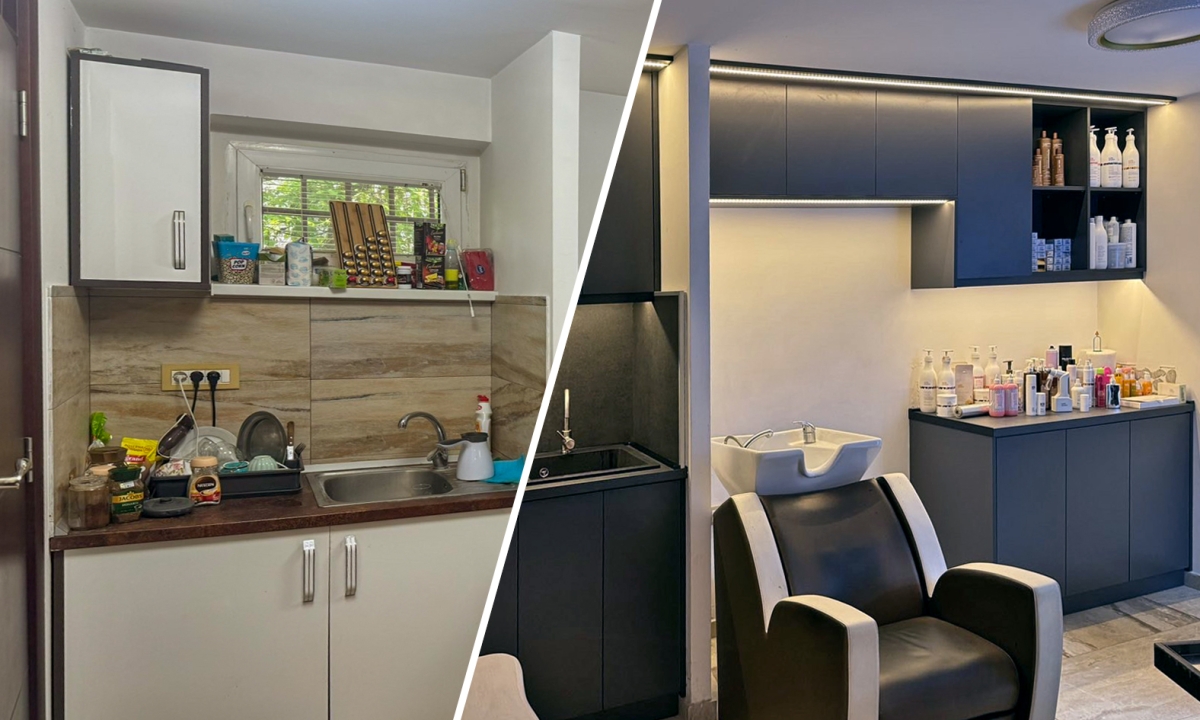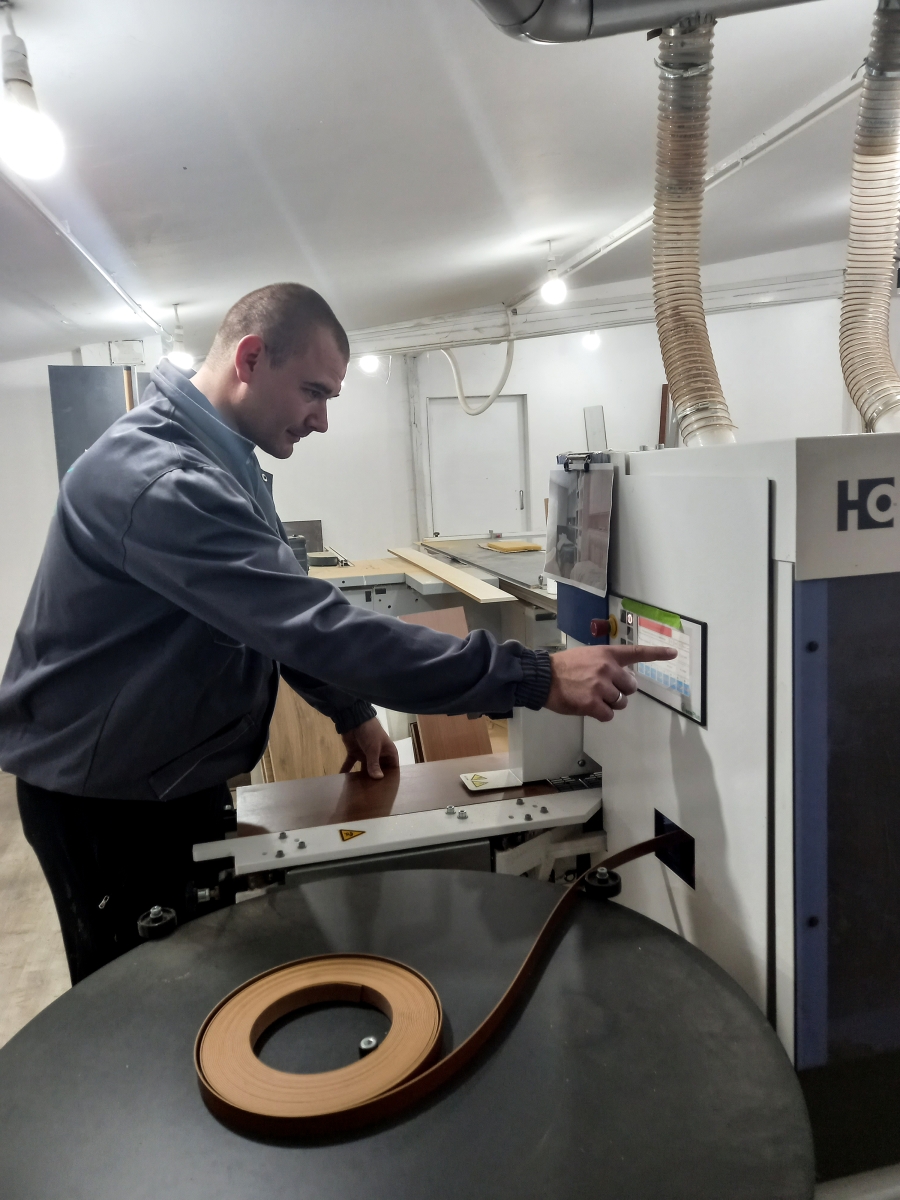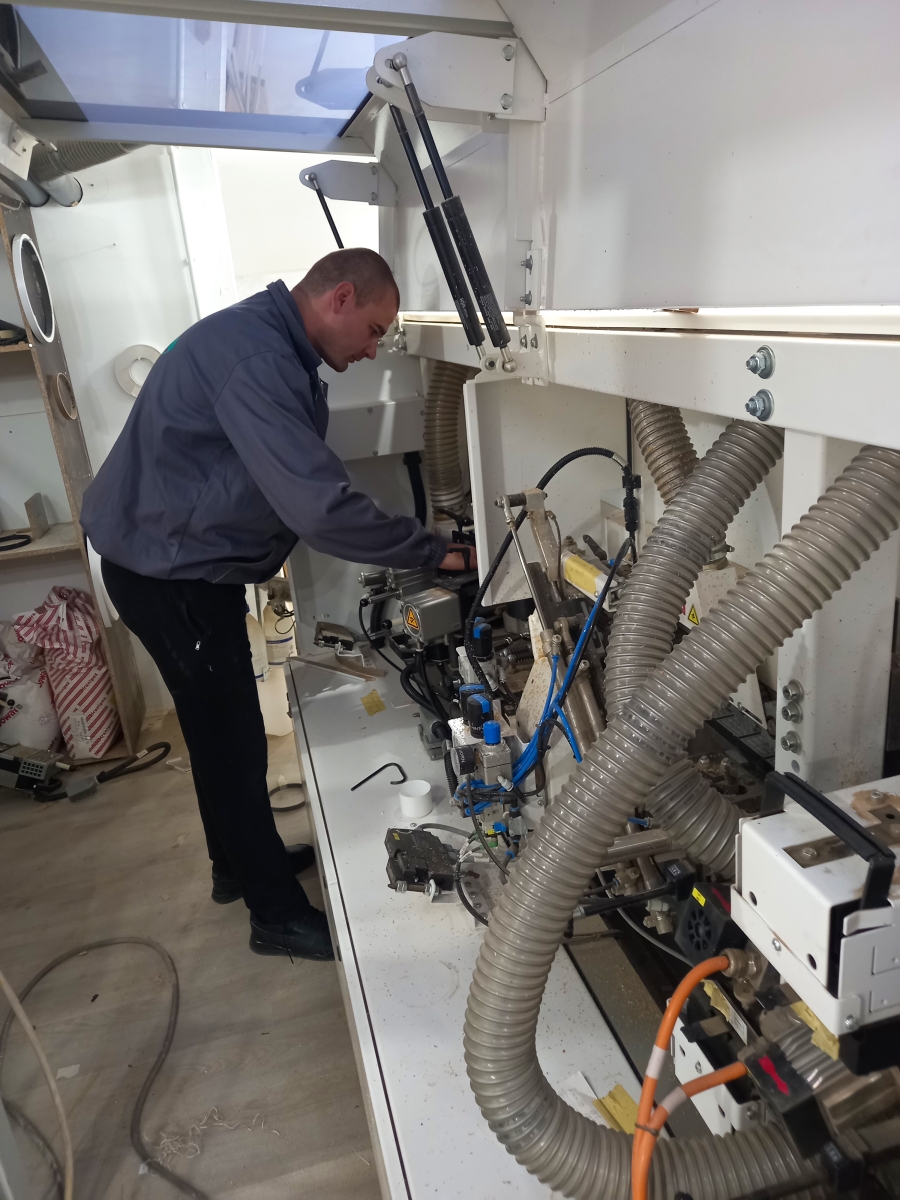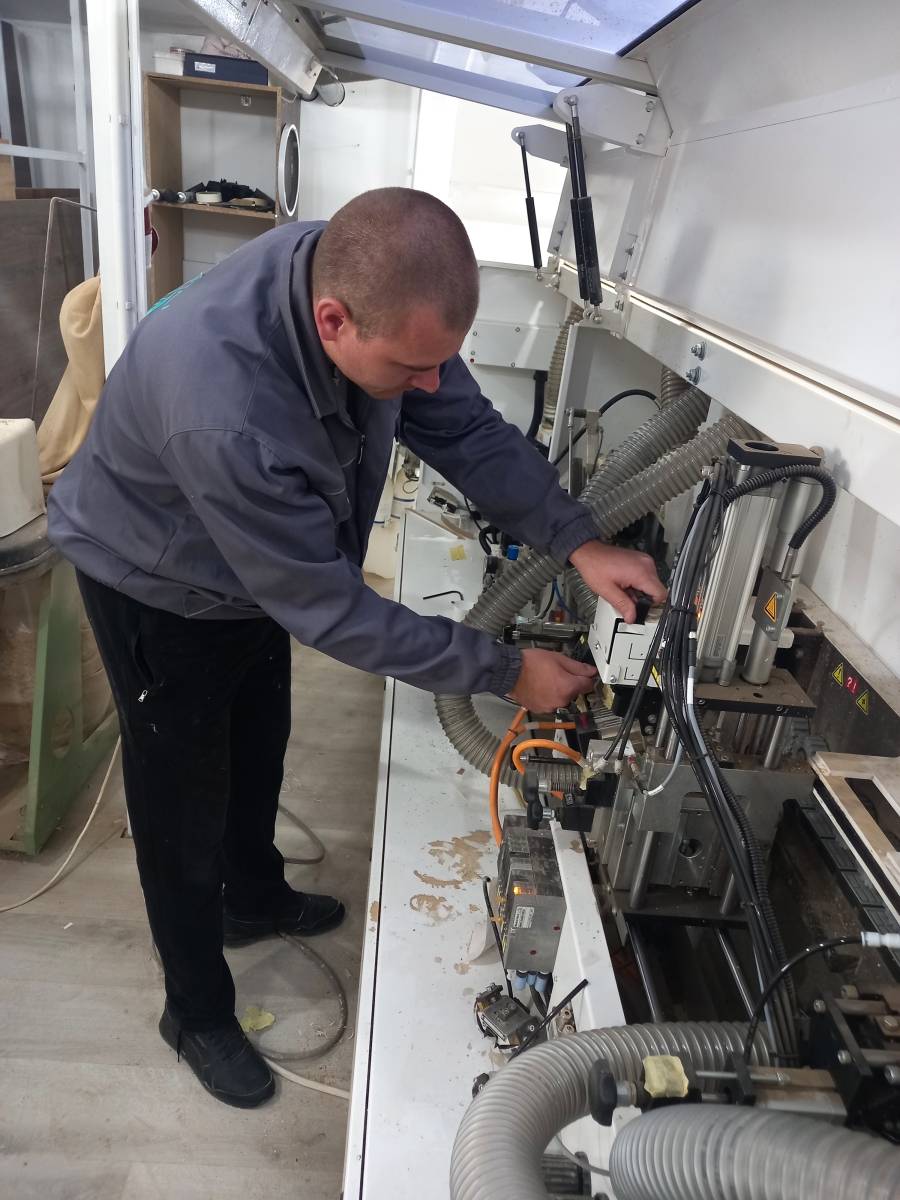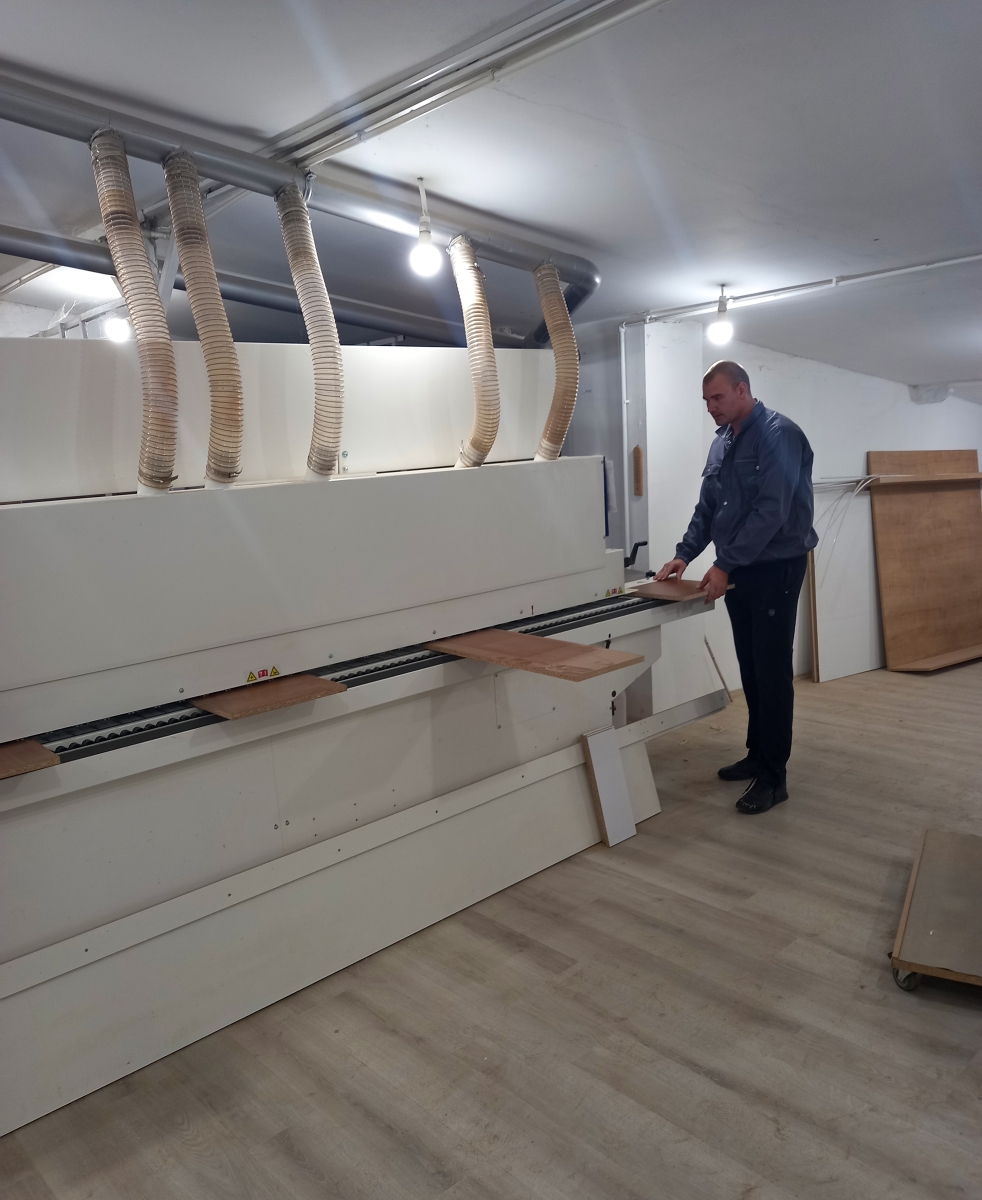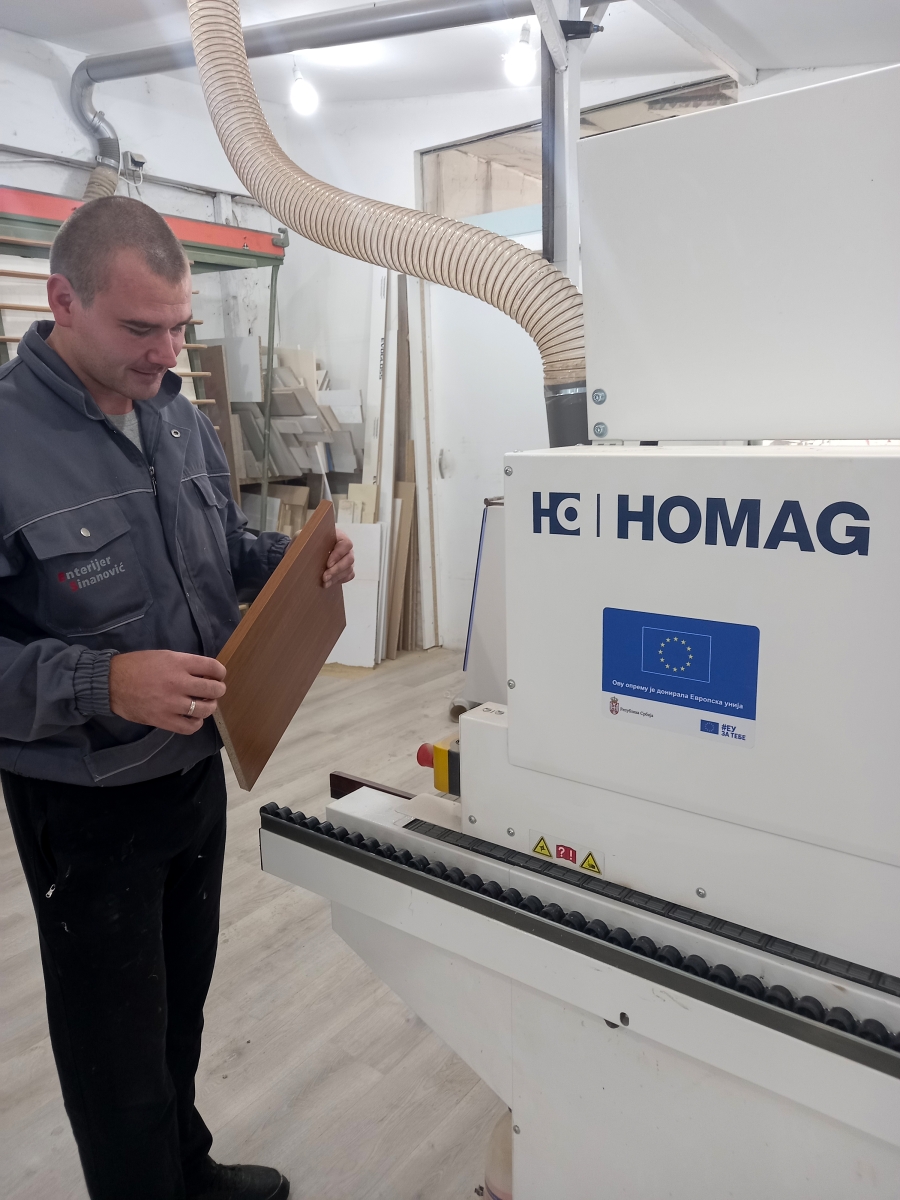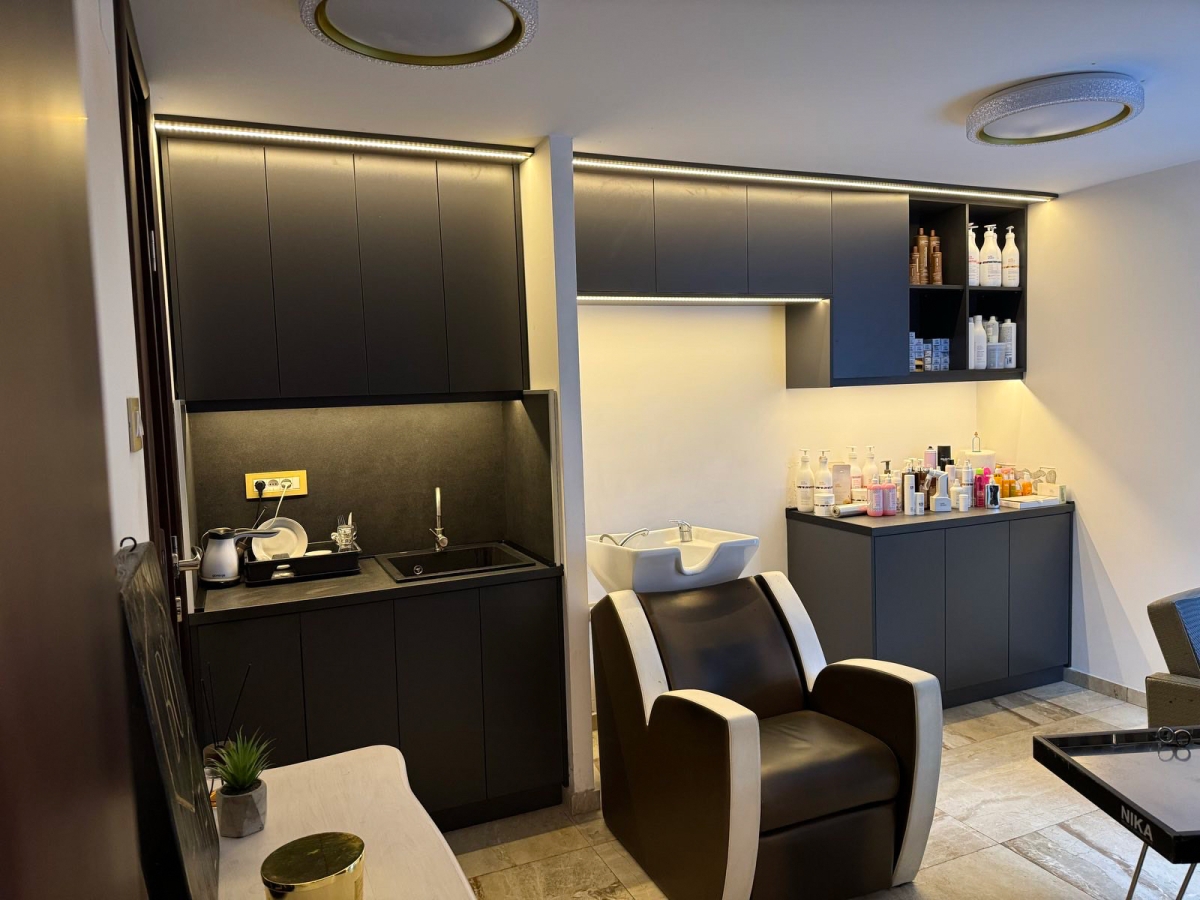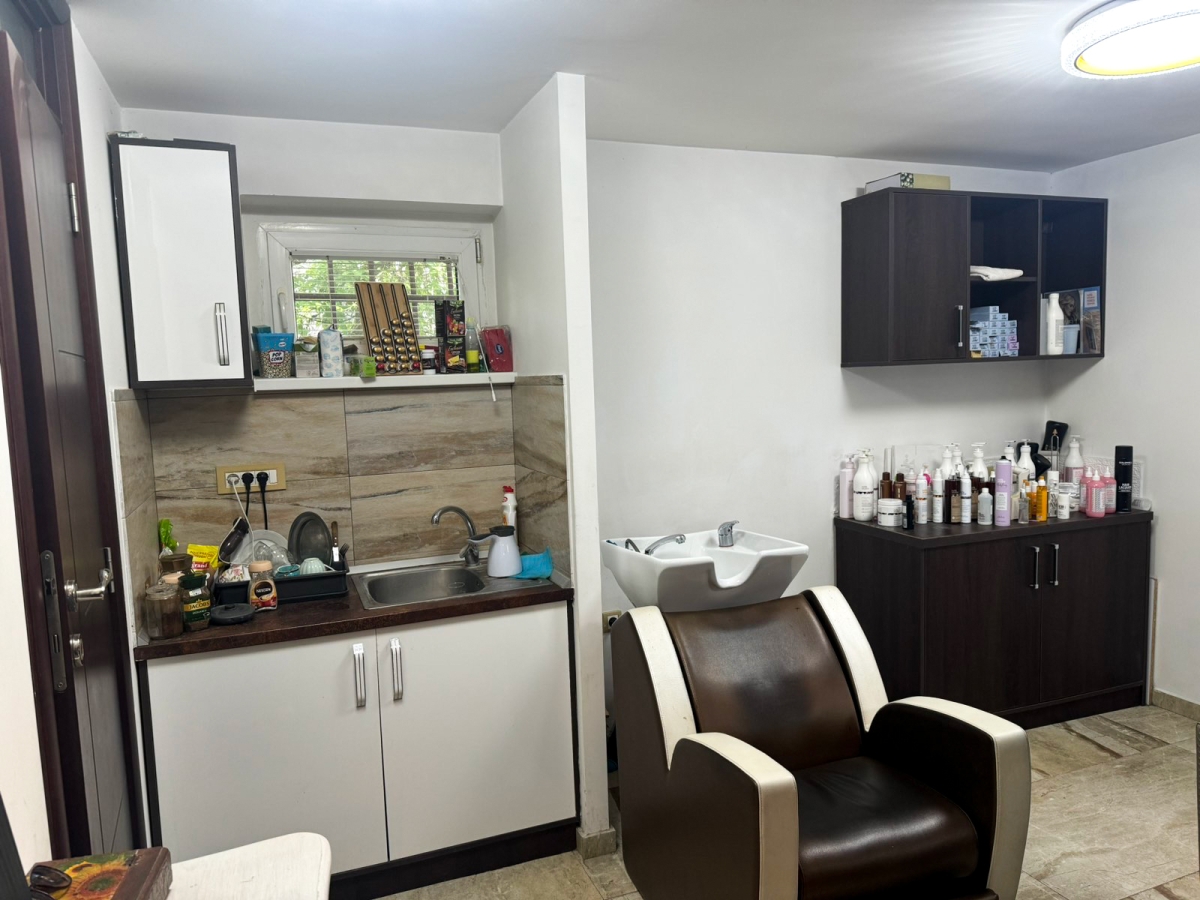Prokuplje, 5 June 2025
"Enterijer Sinanović" from Nova Božurna: A Second Chance for Furniture and the Planet
Furniture restoration is more than the art of making something old look new—it's a conscious choice to protect the environment. By reviving existing pieces, the need to produce new furniture is reduced, saving natural resources and energy. At the same time, restoring instead of discarding helps decrease waste and pollution by keeping valuable materials out of landfills.
Miloš launched his business at one of the most difficult times—during the COVID-19 pandemic. It was the support of his family, he says, that proved "invaluable for small businesses," helping him overcome the first, and not insignificant hurdles.
After fighting to stay afloat, it was time to grow. Through a successful application to the EU PRO Plus programme, Miloš received the EU grant of 28,896 Euros. "The new edgebander machine we procured has significantly sped up production," explains Miloš. "Tasks that used to take time now only take a few minutes. We're saving time and energy, producing more, and improving quality." The company also hired two new employees.
And like all EU-supported businesses through the EU PRO Plus programme, "Enterijer Sinanović" implemented a corporate social responsibility activity by donating furniture to the local kindergarten "Neven."
Miloš's advice to aspiring entrepreneurs is straightforward: "Start from scratch and believe in your idea. Ask yourself if your services are truly needed and if people would pay for them. Then persist despite and due to everything."
In a world where sustainability has become essential, Miloš’s commitment to restoration is a shining example of how traditional craftsmanship can make a meaningful contribution to protecting our planet.
This initiative was part of a broader effort by the EU PRO Plus programme to strengthen local economic development through backing of micro and small enterprises local self-governments across Šumadija and Western Serbia, and Southern and Eastern Serbia. The Public Call for Proposals for Procurement of Equipment and Introduction of Services for Entrepreneurs, Micro, and Small Enterprises resulted in 113 projects (out of 610 applications received) with a total value of 3,564,397 Euros. The EU provided 2,731,787 Euros to support enterprises focused on production and services, including information technology, architectural and engineering activities, health and social care, tourism, and maintenance and repair services. The initiative emphasised job creation proportional to grant size and corporate social responsibility benefiting local communities.
